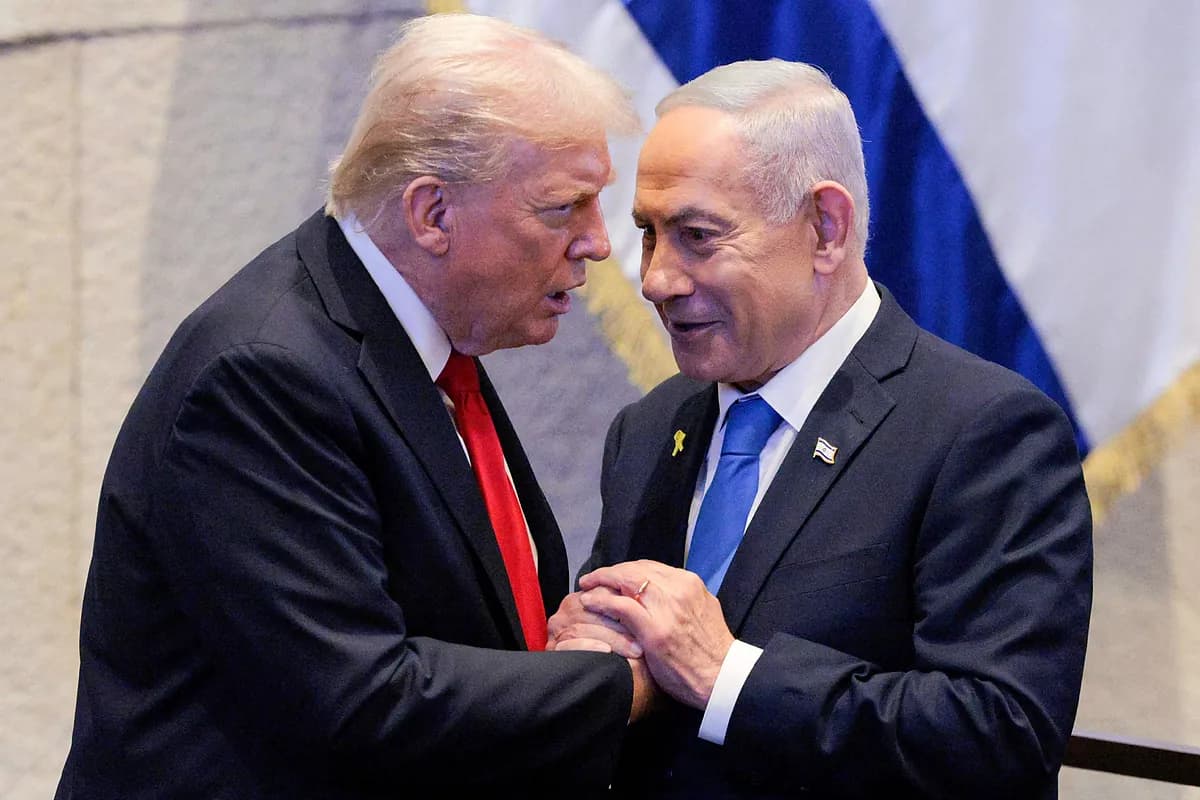"The golden age for Israel and the Middle East has begun," proclaimed Donald Trump, becoming the fourth US president in history to address the Israeli parliament, just before traveling to Egypt to sign a historic peace agreement.
The US president's massive outpouring of support in Jerusalem was so large that he surely regretted that the Israeli legislative chamber was not in charge of choosing the Nobel Peace Prize. In fact, Israeli Prime Minister Benjamin Netanyahu and opposition leader Yair Lapid—both of whom Trump personally praised—agreed that he deserved it after achieving the truce agreement with the return of the hostages to Israel.
"This long and difficult war is finally over (...) This is not just the end of a war. It is the end of the era of terror and death, and the beginning of the era of faith, hope and God," Trump said in a speech unprecedented in its background and the reactions in the old Knesset building in Jerusalem.
"This is the beginning of harmony for Israel and all the nations of what will soon be one great region. This is a new historic era of a new Middle East," Trump said, noting that his personality"stops wars. When you end eight wars in eight months, it means you don't like war."
After praising Israel's "determination and victories" since being caught in the Hamas attack on October 7, 2023, stating that it should be proof that whoever wants to destroy this country will fail, Trump commented that"the forces of chaos that have plagued the region are utterly defeated. From Gaza to Iran, these bitter hatreds have brought only misery, suffering and failure."
In a message he surely already made in his conversations with Netanyahu to convince him to accept the ceasefire in Gaza, he added:"Now is the time to turn these victories against the terrorists on the battlefield into the ultimate prize of peace and prosperity for the entire Middle East."
His speech was accompanied by constant applause in a solemn but very relaxed session with smiles, jokes and praise as long as the speeches, the only tense note being the incident surrounding two deputies from the communist party Jadash: the Jewish Ofer Cassif and the Arab Ayman Odeh. After interrupting his speech by displaying banners with the slogan"Recognize Palestine," parliamentary security forces reacted immediately and expelled them from the plenary session."It was efficient," Trump summed up.
The brief but intense visit coincided with one of the most emotional days in Israel's history, as it embraced the return of the 20 hostages alive. This was largely thanks to pressure on Netanyahu and, through Qatar and Turkey, Hamas to secure a truce agreement in a dedicated Knesset.
After receiving Trump with her husband, the president of the Israeli Parliament, Amir Ohana, thanked him for what he did in his first term, such as the recognition of Jerusalem as the capital of Israel and the Abraham Accords with the normalization of relations with several Arab countries, and revealed that he will collect signatures with the US Congress and other parliaments to officially suggest him as a candidate for the Nobel Peace Prize.
"You are committed to this peace, I am committed to this peace, and together, Mr. President, we will achieve this peace. We will do it as we did with the Abraham Accords," Netanyahu told him, calling Trump"the best friend Israel ever had in the White House, no president has done so much for Israel."
The Israeli leader must have been particularly pleased when Trump directly addressed the country's president, Isaac Herzog, to ask him to grant an amnesty to the prime minister on trial for several corruption cases.
In the Israeli chamber, Trump also met with families of hostages and with hostages who were released in the two previous truce agreements."Their nightmare is over," he said, referring to the hostages released today.
Although the police force tasked with protecting Trump's movements was called"Blue Shield 6," his lightning visit could just as easily have been called "Veni, vidi, vici."

